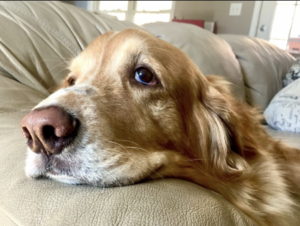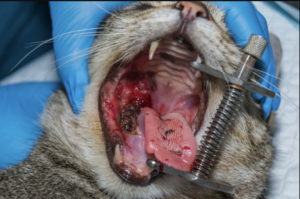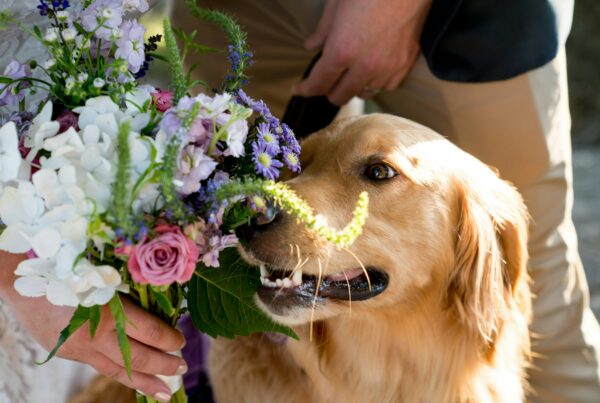You or a member of your family may or may not be a smoker. But it’s common knowledge that smoking is harmful to health. The dangers of passive smoking are also a no-brainer. We all know that secondhand and even third-hand smoking can cause adverse health complications. Simultaneously, it is too dangerous to pets in your house. Read on to know more.
Understanding Secondhand and Thirdhand Smoking
Before proceeding further, let us understand what exactly is secondhand and thirdhand smoking. People who smoke tobacco directly inhale its vapors in their lungs. It is called first-hand smoking. However, they exhale some smoke into the atmosphere. The tobacco product also burns and emits smoke directly into the air. Both these are inhaled by other people and the pets present in the vicinity. It is referred to as secondhand or passive smoking.
The tobacco products leave a residue like the end butts, chars, etc. get attached to various surfaces. It might be chairs, tables, and other furniture, or the skin, fur, etc. of animals and humans. These are known as thirdhand smoking as they are inevitably licked and consumed, especially by animals, and have serious adverse effects, such as loss of sleep. However, some edible canada products can help you get relief from these side effects.
Effects of Secondhand and Thirdhand Smoke on Pets
We know that pets share the same living area. However, we often overlook the fact that they also share the air we breathe. They, too, inhale the same air as we do. Hence, if you are passive smoking, they too are.
It is a well-known fact that tobacco and nicotine contain over 7000 chemicals. Most of them are extraordinarily harmful and carcinogenic. Breathing in the vicinity of a smoker exposes both you and your pets to these toxic compounds as inevitable inhaling of them takes place. The dangerous effects of them in humans are well-known. It can cause respiratory issues, cancer, and other deadly diseases.
- Passive smoking effect on dogs

Various studies conducted and their results indicate grave effects on dogs exposed to passive smoking of both second and third types. They would be more prone to developing health issues like eye infections, allergies, respiratory problems like chronic asthma, bronchitis, lung cancer, and nasal cancer.
Do you know that the length of a dog’s nose plays an essential role in the type of cancer they can incur due to passive smoking? Colorado State University conducted a study. Its results showed that long-nosed dogs are more prone to getting nasal cancer when compared to short-nosed dogs. The situation is reversed for lung cancer, where the short-nosed dogs are more vulnerable.
The long nose of pet dogs like Labradors, Dobermans, Collies, etc. has more surface area in their nasal canals to trap inhaled particles. Passive smoking increases the accumulation of toxins and carcinogens in the nasal mucus and puts the lengthy snout dogs at higher risk of developing nasal cancer. Compared to short-nosed dogs, their chances of nasal cancer are 250% higher. For short-nosed dogs like the Pug, Pekingese, Tzu, etc., the toxins and carcinogens accumulate straight in the lungs to make them more vulnerable to lung cancer.
- Passive smoking effects on cats

Your pet cat is no less vulnerable to passive smoking. On the other hand, the effect is more disastrous on cats compared to dogs. Due to their short nose, these felines are more prone to lung cancer. Passive smoking also increases the incidence of lymphoma in them that is a cancer of lymph nodes. This can be fatal for them.
Because of self-grooming habits, cats are active third hand smokers. They would readily lick the residue of tobacco from surfaces like furniture, rugs, and even their skin, fur, and hair. Licking of these toxic particles exposes and damages the mouth’s mucous membranes, which can lead to oral tumors.
Telltale Signs of Your Pet Being Affected by Passive Smoking
Few signs that might indicate that your pet is affected by passive smoking are:
- Unusual and excessive salivation.
- A problem in breathing and any respiratory issue.
- Chronic itching and scratching, chewing and biting and licking.
- Sores and lesions.
- Vomiting.
- Diarrhea.
- Any cardiac abnormality, including erratic and increased heartbeat.
You must consult a veterinarian immediately to help your pet at the earliest.
Preventing Passive Smoking and Nicotine toxicity in Our Pets
Most pets form an extended family. Hurting them is as painful as affecting your family members. Hence, we all would want to protect them from the dangers of passive smoking. The following tips would help you go a long way.
- The best way is a no-brainer. It would help if you stopped smoking in their presence. If you are smoking to relieve tension and sleep better at night, you can try its alternative. In case you need to smoke, it’s best to smoke anywhere except in your house, garage, and car. Both the smoke and its residue get trapped there. If you must smoke, try switching to an electronic cigarette and vaporizers. To date, there is no evidence that that causes any harm to your pets.
- Sometimes, there is no way out. In those circumstances, try to smoke in a different room so that they get less exposed. The opening of windows increases ventilation and allows the concentration of smoke in the air to dilute and cause less harm.
- When smoking, you must be ultra-conscious about putting the cigarette residue, butts, and nicotine patches in trash or containers that are out-of-reach of your pets. The unused ones should also be inaccessible to your pets.
Wrapping up
Smoking is harmful to both humans and pets. There can be nothing more commendable than quitting smoking or taking up to healthier alternatives. It is the least that any smoker can do to safeguard their family and pets. But those who cannot quit must make an effort to switch to healthier habits. This way, your pets will remain safe and healthy, and you would be happy as well.
photo credit; Photo by Ibadah Mimpi from Pexels
Love our content? Share it with a friend or link it to social media. Like short clips of cute household pets? Training tips? Follow us on instagram @nydognanny or on YouTube at nydognanny. Have some news you needs to get to dog and cat parents stat? Email info@newyorkdognanny.com with your article pitch.





